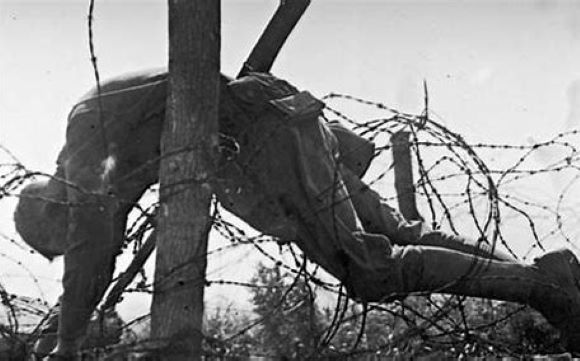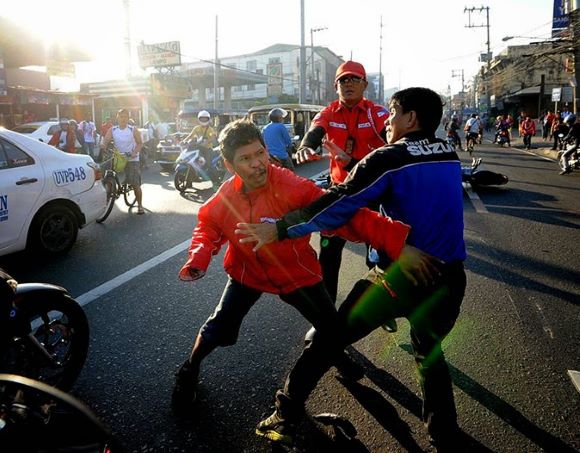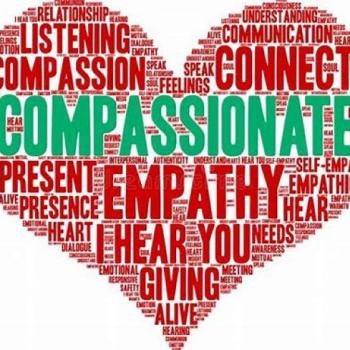Am I Waging a “Just War,” or Just War?
Other than taking over the nightly news and seeing really horrific scenes on TV and online, what does war mean to me? In today’s world, there are any number of wars, actions, and skirmishes. According to the Global Conflict Tracker l Council on Foreign Relations (cfr.org) there are no less than 27 larger-scale and trackable conflicts today. So, are these wars “good” or “just” wars?

What is a “Just War?”
So, what’s the difference between a regular old war and a “just” war? Every nation and international agency has its own definition of “just war,” but the very first came from Saint Augustine in the 4th century. He broke it down into two different points:
- jus ad bellum(“right to go to war”)
- jus in bello(“right conduct in war”)
The definition of “just war” has stayed basically the same since St. Augustine wrote them. They are:
- The damage inflicted by the aggressor on the nation or community of nations must be lasting, grave, and certain.
- All other means of putting an end to it must have been shown to be impractical or ineffective.
- There must be serious prospects of success.
- The use of arms must not produce evils and disorders graver than the evil to be eliminated.

Bringing “Just War” Theory Home.
Let’s break “just war” down into personal terms. If you are dealing with a bully, an antagonist, an aggressor in the neighborhood… you would have to look at these four things:
- Is what your antagonist doing going to cause you permanent harm?
- Have you tried everything in your power to get them to stop, and they’ve just blown you off?
- If you did something about their aggression, is there a way you could get them to stop?
- Will the way you get them to stop not be evil in some way or be worse than what they are doing to you?
Where’d We Go Wrong?
In today’s society, we have completely forgotten the idea of moral rules if we “go to war” with someone. We’ve taken up the ancient ideas of “Win at all costs!” and “Salt the earth!” strategies. The wars in Ukraine and Gaza look exactly like what is happening on our streets today, only on a larger scale. We have rampant use of war weaponry in the hands of children and adults who have no business having them—they aren’t in the military, they aren’t of age, and they aren’t trained! There seems to be a mental attitude of “if I can’t have it, no one can.” And there is a definite “us versus them” tribal attitude in communities, society, and politics as a whole.
How Do We Fix it?
First, we need to realize it will never be “fixed.” As it says in Mathew 24:7 “Nation will rise against nation and kingdom against kingdom. There will be famines and earthquakes in various places.” But that doesn’t mean we can’t do things to make better choices.
“Train Them Up.”
Proverbs 22: 6 says, “Train up a child in the way he should go; even when he is old, he will not depart from it.” As a society, we have gotten away from spending time teaching our children the right way to live, the civil way to live. The Golden Rule (do unto others as you would have them do unto you) is almost completely forgotten. In a recent National Parents Poll, “less than one in five parents (14%) said they use the Golden Rule phrase with their children at all—and over a quarter of all parents (28%) said they are unfamiliar with the meaning of the Golden Rule.” We, as a society, no longer teach general Biblical principles that our grandparents, and their grandparents, lived and breathed. Things like “Turn the other cheek” (Matthew 5: 39) and “Am I my brother’s keeper” (Genesis 4: 9)—to which the answer is “Yes!” —are long forgotten. Today, the battle cry seems to be, “I want what I want, and I want it now… so I’m taking it!” and “It’s a dog-eat-dog world out here, and I’m the biggest baddest dog out here!” are commonplace.
Where Does Teaching Happen?
In two words, at home. But I’m going to expand the title home a bit. Home is not just the domicile you live in; it’s your entire community. To borrow a phrase from Hillary Clinton in 1996, “It takes a village to raise a child.” A parent or grandparent can go a long way in raising a child in the right way, but what about when the child walks out your door? Who is raising Jr., then? It is all-important to surround our youth with good, moral, and responsible people. Remember, as a parent, it’s not only your privilege but your job to raise a responsible young person. That means you need to give them your time and guidance. You need to be aware of who their friends are. You need to talk about hard moral issues and have the right answers. This means you need to know the right moral answers. It’s tough being a parent, but it’s something you have been called to be.
And this teaching isn’t only for children. No. There are many adults who were never taught a good and moral way to live. Our prisons and streets are full of people who thought they could “get away with it,” or they were “just looking out for what was mine,” or exacting revenge for whatever reason. It isn’t until we, as a community, reach out to these individuals and help them understand that there is a different, better, more just code to live by—that a real difference can be made.

Conflict Resolution
How many times online have you simply stated what you feel—damn the torpedoes—and just spewed all the hate, bile, and emotion you felt? The anonymity, the listening to one’s own tribe, the isolationist mentality become the highest callings in our lives. These are the things that create war. War within ourselves, our friends, our communities. Here’s a question: How many of you lost friends over politics in the past 10 years? Be honest.
We, as a society, have lost the ability to disagree civilly. We “go to war” every time the person across the table or across the aisle doesn’t agree with where we’re coming from. We are willing to double down and proclaim a scorched earth agenda if we don’t get our way. In James 4: 1, it’s asked, “What is the source of quarrels and conflict among you?” It goes on to show that most sources are selfishness. “I want to be right” turns into “I must be right,” which turns into “I am right!” with no personal reflection or listening to the opposition. We have lost the ability to listen to the other side. We immediately jump to judgment, and our pride takes over.
How do we stop this cycle of vicious action? We need to stop being self-centered and remember we are our “brothers (and sisters) keeper.” Pride is the worst of the 7 deadly sins. All the rest of the 7 come back and point to the principle of pride. “I deserve better! I need recognition! I’m right, and you’re wrong!” If we can get away from believing our own press of “I’m always right!” and listen with open ears and hearts to the person across from us, maybe we can begin to understand things from their perspective. We may not agree or condone where they come from, but we will, at the very least, begin to understand how and why they think the way they do. This is the beginning of stopping a war before it starts.

Is It Just Me?
We need to face a hard fact. Maybe, just maybe, I was in the wrong. It’s important to sit down with your own conscience from time to time. As the old adage says, “If I keep having the same issue over and over with other people, maybe the problem is me!” It’s not easy, and it’s not comfortable, but it’s very necessary. Then, to take things one step further, if you do find out even a part of what happened is your fault, it’s your responsibility to go to your adversary and apologize. This is how we are to live. We take responsibility for our actions.
So Where Do I Start?
Let’s start by rewriting the “Just War Theory” into “My Personal War Theory.” Ask the questions:
- What and why does my opponent think?
- Do I understand where they are coming from?
- Have I searched my own conscience? Is anything I’m doing wrong?
- Can I see the middle ground?
- Does my opponent understand where I’m coming from?
- Have I tried every avenue to help my opponent understand my point of view?
- If we continue to disagree, what can I do (within reason) to make them stop?
- Can we bring in a third party to help negotiate our conflict?
- If they refuse to see my side, can I walk away or avoid them?
- If they refuse to stop their action, even after I’ve done all the above, what lawful recourse do I have?
Will the above solve every war? No. But by taking these steps, you can be assured you’ve tried everything in your power to stop an unjust situation and hopefully deflate tension between you and an opponent.













